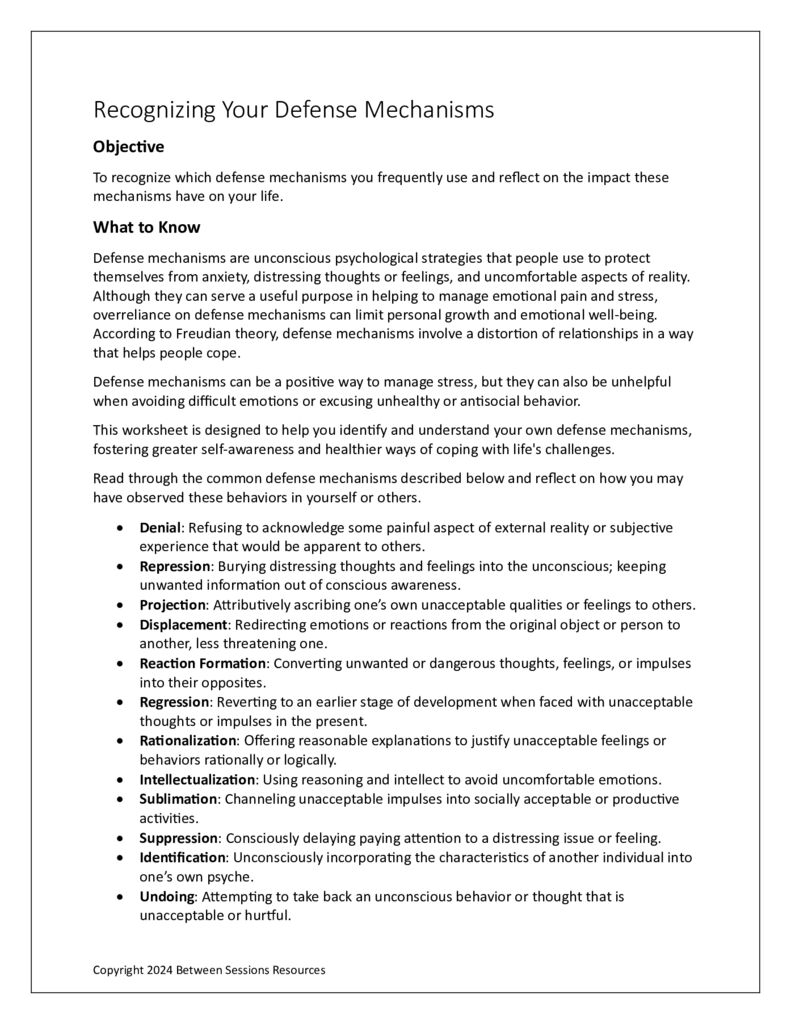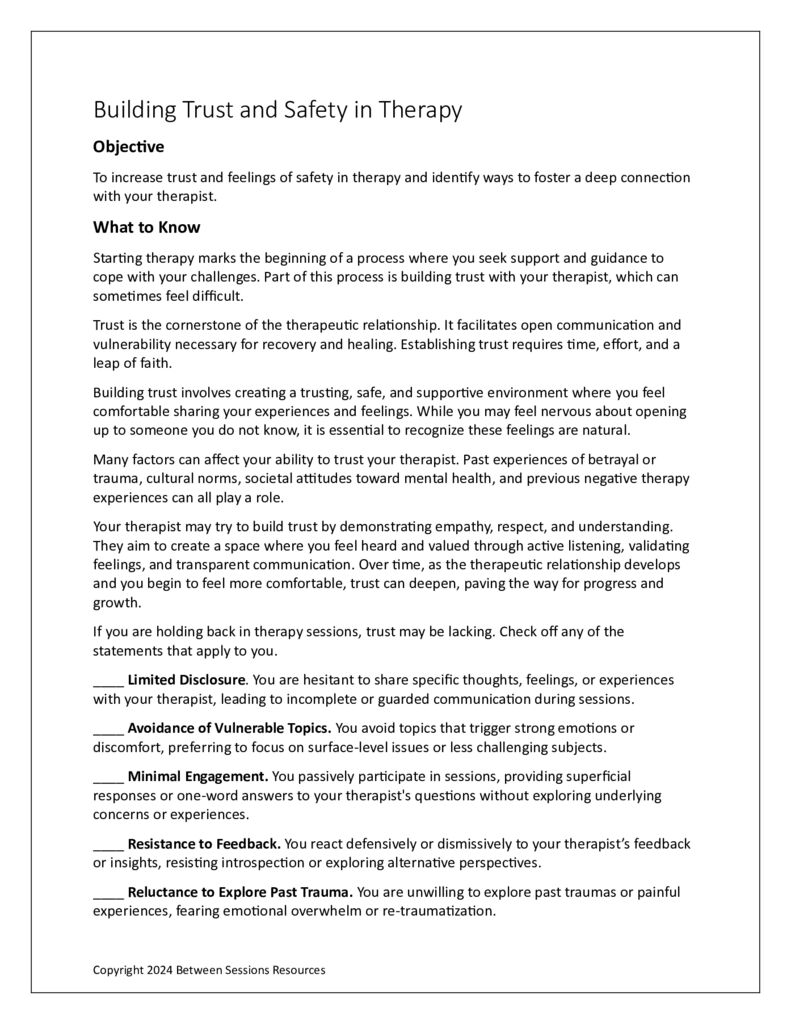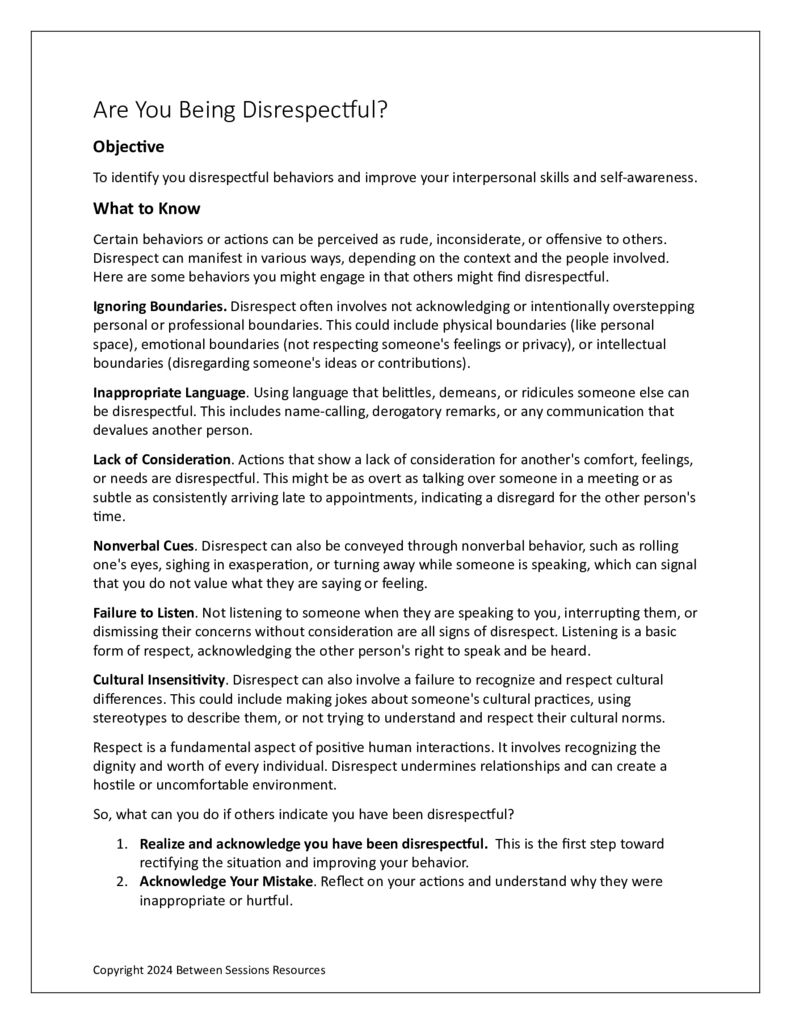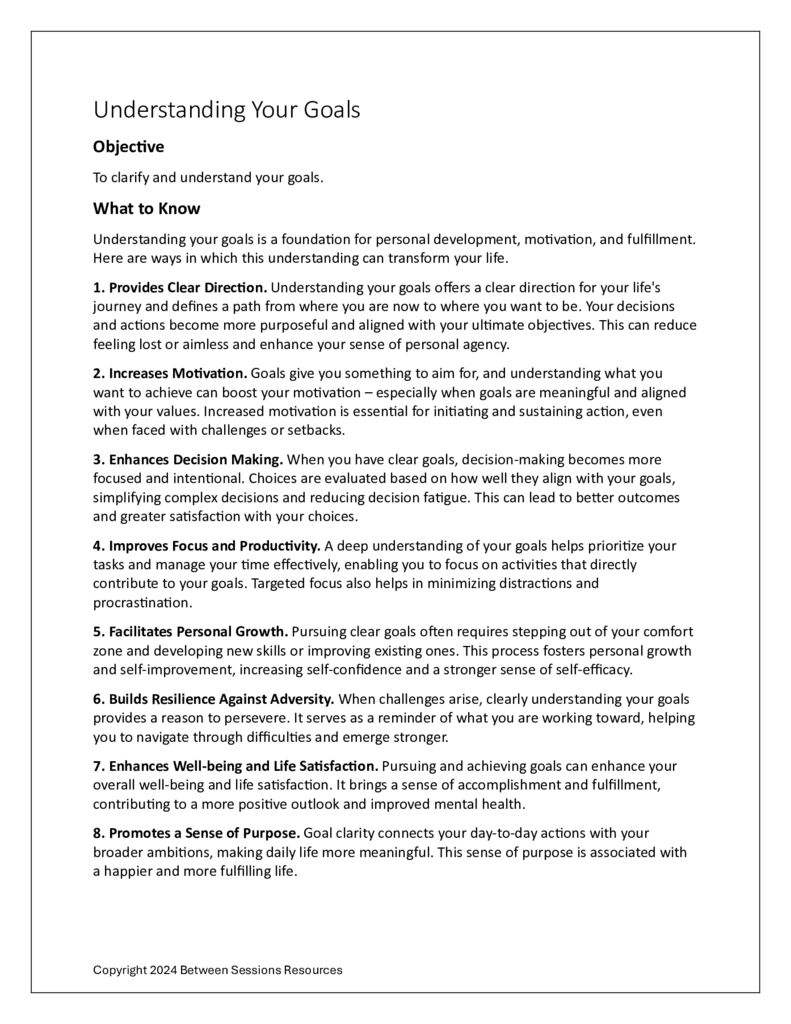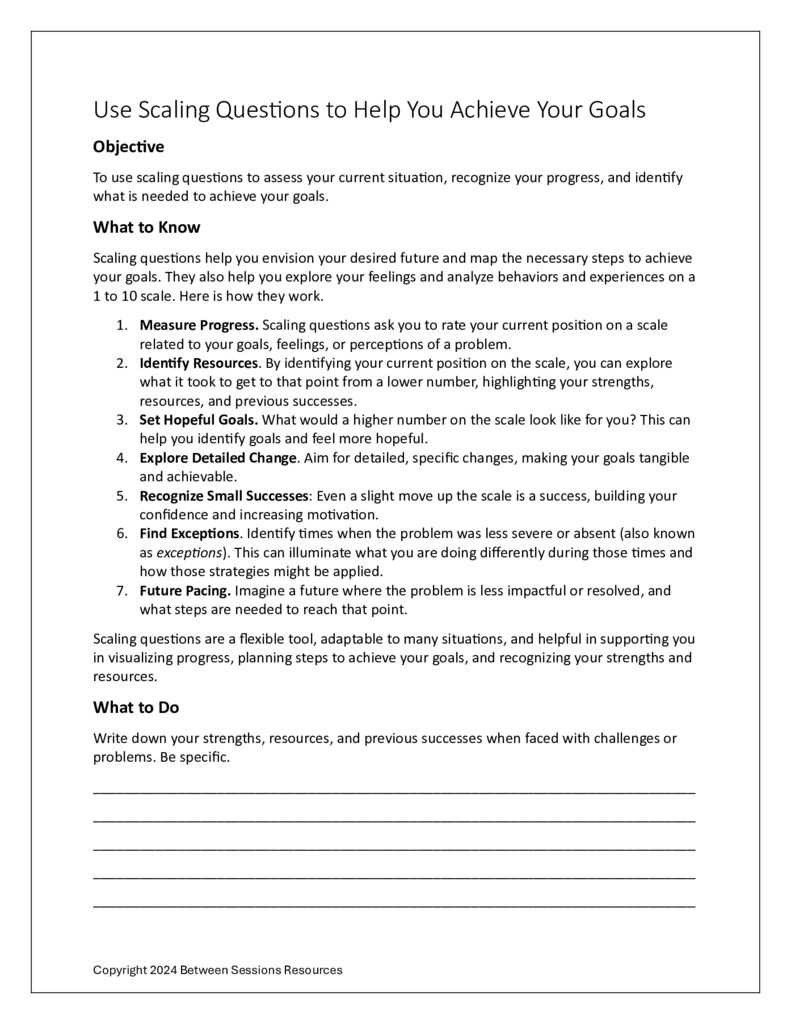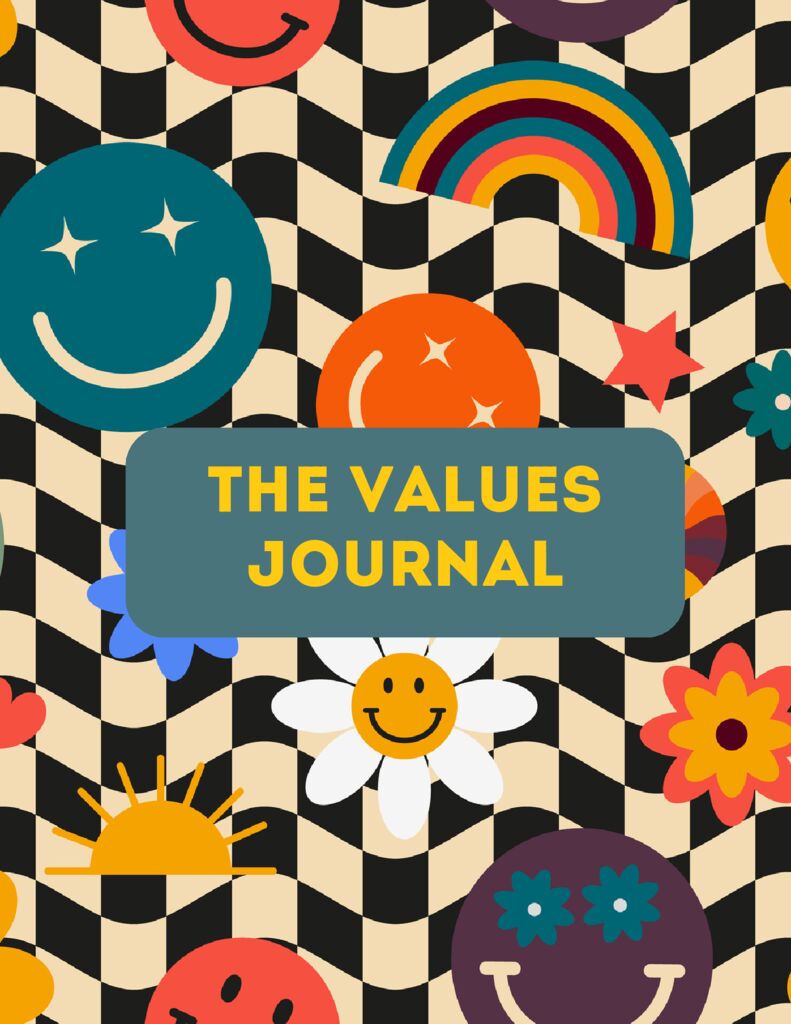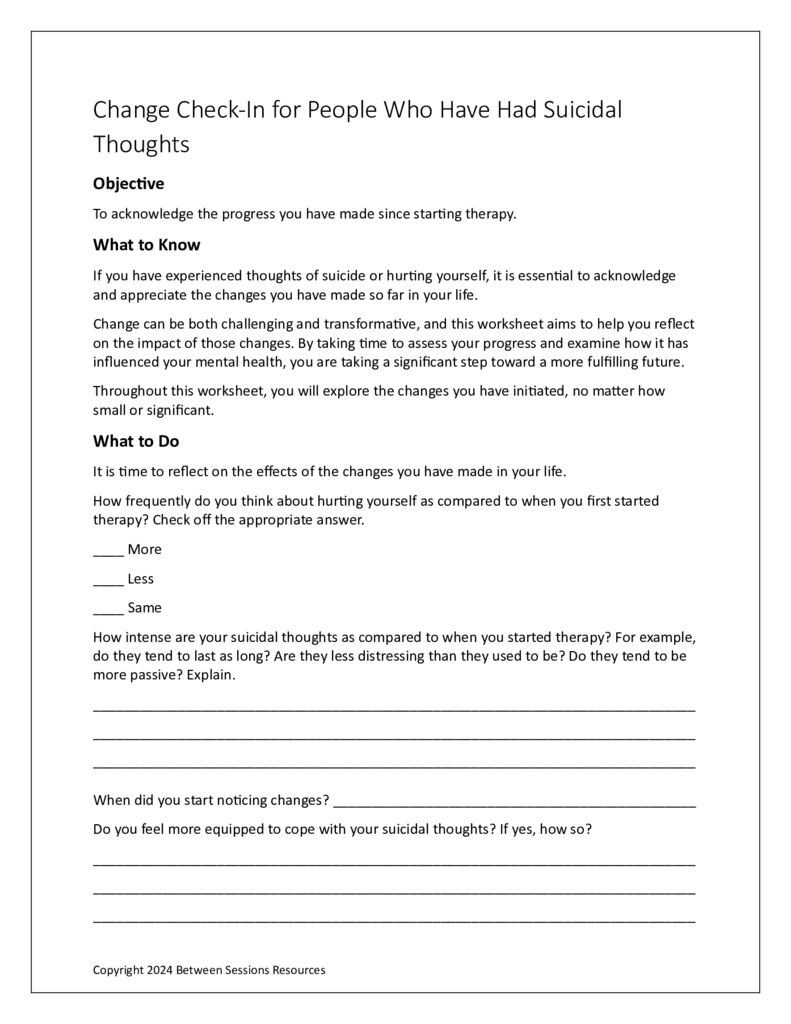This mood log can help people keep track of triggers, moods, and patterns affecting their emotional regulation. (0624, moods, Bipolar Disorder, depression anxiety, assessment)
This worksheet suggests that people make a playlist to help them shift their mood if they are angry, depressed, anxious, or upset. It guides them to select a song that reflects their current feelings, and then several transition songs. The playlist ends with a song that could trigger a desired emotion. (0624, depression, music therapy, mood, emotional regulation)
This worksheet is designed to help you introduce the concept of defense mechanisms to your clients. Defense mechanisms can include denial, repression, projection, idealization, compartmentalization, and more. (0424. depression, psychodynamic therapy)
Sometimes clients may be resistant to therapy or counseling because of previous negative experiences in getting help. This worksheet asks clients to think about their concerns, including increased vulnerability, fear of emotional dependence, financial strain, and so on. It presents questions for the clients to help them determine how past experiences might affect their current commitment to growth and change. (0424, growth, progress, trauma)
This worksheet can be used with clients who may have trust issues when starting therapy or counseling. It asks people to explore how trust issues are affecting their therapy work, such as limiting disclosure, reluctance to explore past trauma, inconsistency in attendance, and so on. It also offers even ways for clients can build trust and get the most out of their therapy or counseling sessions. (0424, trust, therapeutic alliance, progress)
This worksheet is designed to help people identify when their behavior may be seen as disrespectful and improve their interpersonal skills and self-awareness. The worksheet includes eight ways for people to repair relationships when others say they have been disrespectful. Questions guide individuals to understand the reasons why they may have been disrespectful. (0424. social skills, interpersonal effectiveness, DBT, relationships)
This worksheet, based on Solution-Focused Brief Therapy (SFBT) is intended to help people see the importance of setting realistic goals. It asks people to envision how they want their future to look and then write 3 realistic goals that can guide their decisions and behaviors. It also asks them to think about people who can help them achieve their goals and designate small steps with each one bringing them closer to their goals. (0324, Solution-Focused Brief Therapy, goal-setting, problem-solving)
This is a technique advocated by Solution Focused Brief Therapy. It encourages clients to continually rate their progress in addressing their problems on a 1 to 10 scale. (0324, motivation, solution-focused therapy)
This 60-page journal encourages people to explore their values and how they affect their day-to-day choices and behaviors. This is a great way to combine the techniques of values clarification and journaling. The journal can either be downloaded and printed out or filled out online using our Psychology Forms Filler or Virtual Counseling Rooms. (0224, journal, ACT, Acceptance and Commitment Therapy).
This worksheet is designed to help people who have started therapy reflect on how they have changed their thinking and behavior. (0124. suicide, suicidal ideation)



